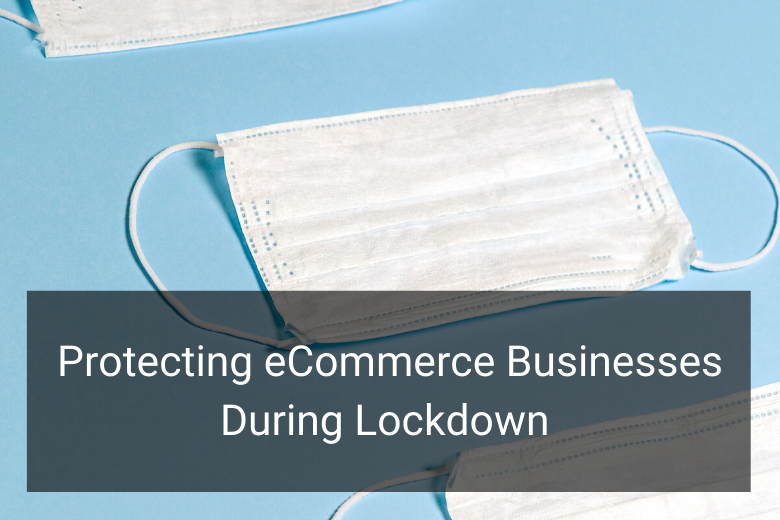Top Tips for Sustaining and Protecting eCommerce Businesses During Lockdown
While the COVID-19 outbreak is primarily a human tragedy, its economic impact is already huge and will continue to grow. As the global pandemic continues, ecommerce business owners must think creatively to keep their enterprises afloat. As part of their bid to stop or at least slow the spread of the virus, governments have ordered travel restrictions, the suspension of non-essential workers, and other lockdown measures. Individual countries’ response and action will depend on the specifics of their situation, but in almost all cases dropshippers and print on demand services have been severely curtailed. This article is not intended to influence public health and safety, which is the main concern. While you should follow all directives issued by your local authorities, there are also several measures that you can take towards protecting your ecommerce businesses during this lockdown. They are outlined below.
Pivot Your Business and Consider Alternate Revenue Streams
If the market for the items you supply has ebbed during this time, think about what is required or trending, and whether you can supply it. Several print on demand companies have already begun 3D printing essential personal protective equipment items like face masks, and open-source PDF files with the specifications are available online.
Even Ford, Toyota and other large corporations are getting involved, working with GE Healthcare to use 3D printing in the construction of air ventilators. You could also consider expanding your business into countries that have been less disrupted, or adding ancillary services to your portfolio. For example, if you dropship homeware, could you add an interior décor consultation that could be done remotely?
Focus on Customer Service
Make sure you have directly communicated with your customers to articulate the difficulties you might experience in completing their orders. These issues could include suppliers not delivering to you, or domestic shipping restrictions in destination countries.
Customers will appreciate your candor in apprising them of the situation, and are likely to understand given the size and scope of the coronavirus crisis. Given the uncertainty of when manufacturers and factories will reopen, and when air travel will resume, it’s also a good idea to look at alternate suppliers and methods of delivery.
Review Your Advertising Strategy
Take a close look at your marketing spend, and where it could be streamlined. Running ads less frequently, but on key platforms such as Facebook or Google AdSense could be a more effective use of your budget. Promotions to encourage purchases are another good idea right now; besides adding auxiliary services you could reduce prices when customers buy multiple items or use payment mechanisms that are easier for you to manage.
Organic advertising, in the form of emails, blogs and social media posts, can also attract a lot of customers. You may not usually have enough time to develop these channels properly, but lockdown gives you a great opportunity to do just that.
Make regular posts on your Facebook, Instagram, Twitter and other pages, and research what time of day to do this in order to have maximum impact. Follow the channels of successful businesses that are similar to yours, and if you’re a new enterprise use social media to do a little market research by creating separate accounts for a variety of niche products. The number of followers will soon show you what you should be focusing on.
One marketing opportunity that is often overlooked is email. Don’t simply make use of automated abandoned cart emails; craft a more detailed email sequence strategy. Chatbots, marketing automation platforms and upselling sequences should also be investigated now. Finally, devote some extra time to your business page. Write relevant, entertaining blogs that are optimized for search engines, and take this opportunity to update your website’s user interface.
Prioritize Upskilling
Upskilling is always valuable, but it’s another area that you might not have time for when business is running as usual. During lockdown, you have the time to mine the unlimited business information online.
Find out what leading entrepreneurs are saying about how to increase sales, or take advantage of online marketing and dropshipping courses. Time management, public relations, and logistics are just a few more of the skills that you could focus on developing.
Investigate Financial Aid and Cost Cutting
Several alternate financiers are offering credit to small and medium ecommerce companies to fill their short-term funding shortages. Check what is available to you, and what mortgage holidays, reduced interest rates and other relief measures your government, banks and service providers are offering.
Streamlining your business expenditure, wherever possible, is also recommended. Evaluate and negotiate better rates with payment and shipping partners, automate manual operations and tasks, change your packaging to reduce costs, audit your administrative protocols and cut any excess costs and, as mentioned before, look for alternate suppliers.
Communicate Infection Risk to Customers
While the risk of COVID-19 is serious and should always be treated as such, experts and authorities like the United States’ Centre for Disease Control have confirmed that package deliveries are unlikely to be infectious, and this fact should be communicated to customers.
The virus is transmitted through respiratory droplets from sneezes or coughs, and there is some evidence that it could be airborne, which is how it spreads between people. Touching a contaminated surface and then touching your face, eyes or mouth can definitely lead to infection, but the germs don’t live for very long outside a host.
Studies suggest that on cardboard the virus survives up to 24 hours, and on stainless steel and plastic it survives up to three days. Products that are shipped over days or even weeks at ambient temperatures, therefore, will almost certainly not spread the disease.

Ready To Upgrade Your Logistic Solution?
Speak to Floship ecommerce logistic consultant about improving your global support chain today




